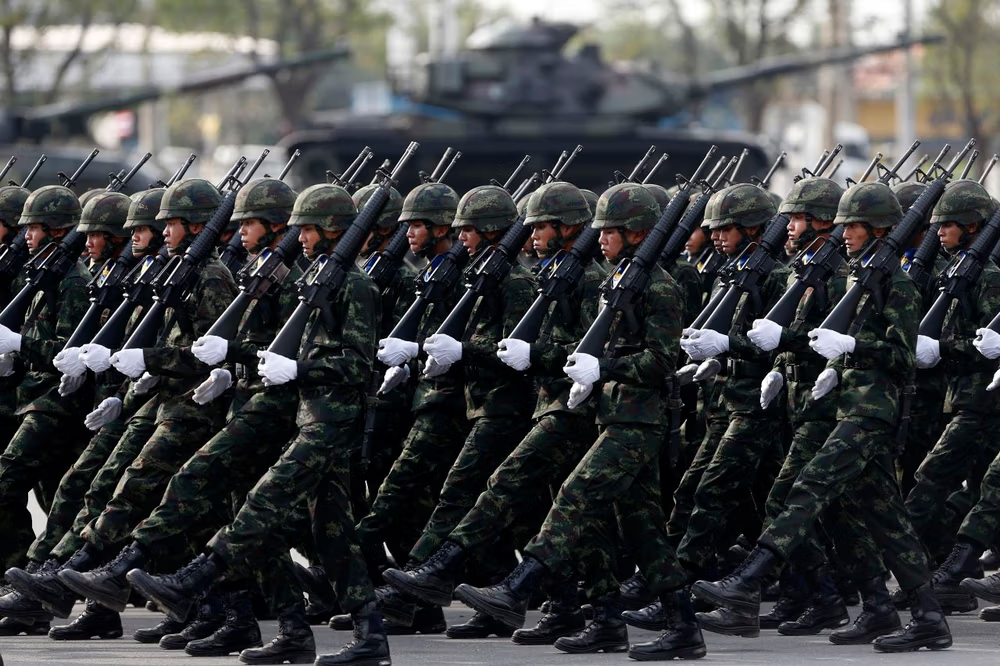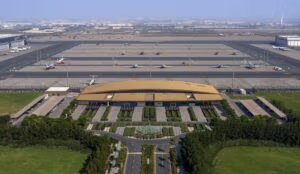Tensions between Thailand and Cambodia erupted into open conflict on Thursday, with both nations exchanging fire along their shared border. The Thai army launched airstrikes on Cambodian military targets, while both countries blamed each other for triggering the escalation, which has left one civilian dead and others fleeing for safety.
The outbreak of violence follows a deterioration in diplomatic relations, which reached a low point this week. On Wednesday, both countries downgraded ties, each expelling the other’s ambassador. The Thai government also sealed all land border crossings with Cambodia.
The Thai army confirmed it conducted airstrikes targeting Cambodian military positions on the ground. Meanwhile, Cambodia’s Defense Ministry claimed that Thai fighter jets dropped bombs on a road near the historic Preah Vihear temple — a frequent flashpoint in past border tensions.
Thai Defense Ministry spokesperson Surasant Kongsiri said that clashes were ongoing in at least six locations along the frontier. The first confrontation Thursday occurred near the Ta Muen Thom temple, which straddles Thailand’s Surin province and Cambodia’s Oddar Meanchey province.
A livestream broadcast from the Thai side captured residents fleeing their homes and taking shelter in a concrete bunker as explosions rang out Thursday morning.
According to Surasant, one civilian was killed and three others, including a five-year-old boy, were seriously injured when Cambodian forces fired into a residential area. He also stated that a hospital had been struck.
“The Royal Thai Government calls upon Cambodia to take responsibility for the incidents that have occurred, cease attacks against civilian and military targets, and stop all actions that violate Thailand’s sovereignty. The Royal Thai Government is prepared to intensify our self-defense measures if Cambodia persists in its armed attack and violations upon Thailand’s sovereignty in accordance with international law and principles,” said Nikorndej Balankura, spokesperson for Thailand’s Ministry of Foreign Affairs.
Cambodia has strongly denied initiating hostilities. Prime Minister Hun Manet said that Cambodia has consistently sought peaceful solutions but was forced to respond.
“We have no choice but to respond with armed force against armed aggression,” he said, emphasizing that Cambodia has always maintained a policy of resolving disputes peacefully.
Thursday’s violence followed a land mine explosion the day before that injured five Thai soldiers near the border. In protest, Thailand withdrew its ambassador from Cambodia and expelled Cambodia’s ambassador. In a reciprocal move, Cambodia downgraded relations and expelled the Thai ambassador while recalling its embassy staff from Bangkok.
The Thai army said the Thursday morning clash began when a drone was detected near its position, followed by the sighting of six armed Cambodian soldiers approaching. Thai troops reportedly attempted to de-escalate by shouting warnings, but were met with gunfire.
Cambodia, however, accused Thailand of initiating the clash with a drone incursion and opening fire without provocation. “Cambodia acted strictly within the bounds of self-defense, responding to an unprovoked incursion by Thai troops that violated our territorial integrity,” its Defense Ministry said.
As border skirmishes continue, the Thai embassy in Phnom Penh warned that the situation could further escalate. It advised Thai citizens in Cambodia to leave the country if possible and urged others to avoid travel unless absolutely necessary.
Border violence has been simmering since May, when a clash resulted in the death of a Cambodian soldier. Tensions have been fueled by growing nationalist sentiments in both nations.
A recent series of land mine explosions has added to the hostilities. Last Wednesday, five Thai soldiers were injured — one of them losing a leg — and a week earlier, another explosion wounded three Thai soldiers. Thai authorities allege that the mines, which they claim are newly planted and Russian-made, were placed along routes previously agreed upon as safe zones. Cambodia has rejected these claims as “baseless accusations,” citing the region’s history of unexploded ordnance from decades of war.






